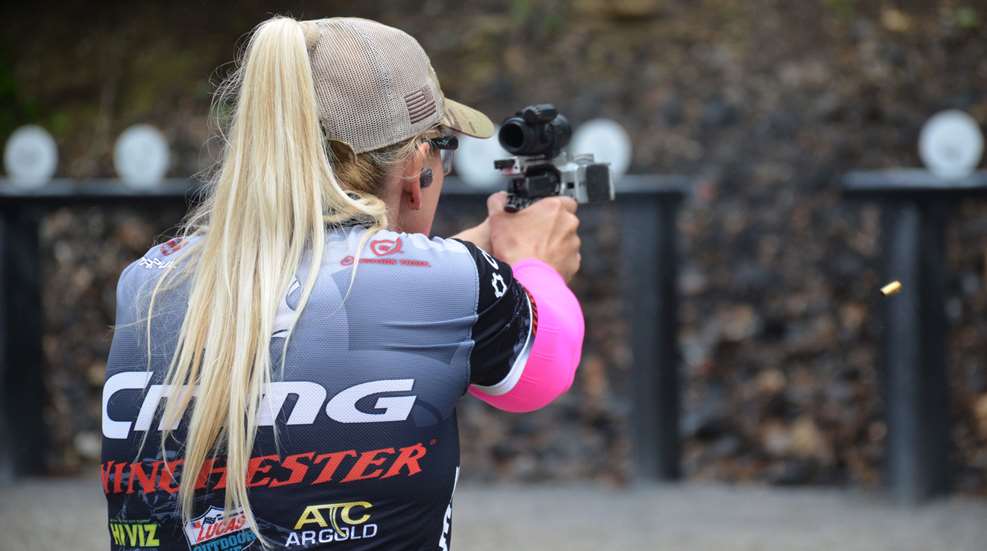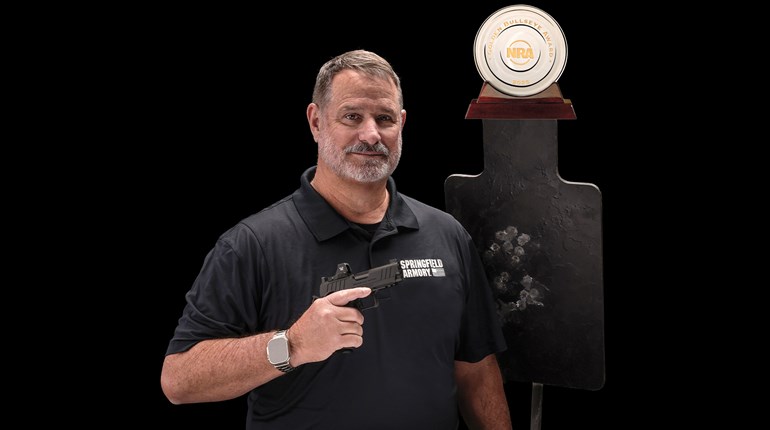
One of the questions I’m often asked by those outside my sport is, “Why do you compete?” There are many facets of competition that I love, but one of the biggest reasons is growth. I’m going to explain how I look at growth through the shooting sports while talking about the side of competition many people don’t want to think about, and that’s failure.
Failure is Not a Bad Word
Failure is not a bad thing. The potential for failure means you are attempting to accomplish goals—things that are big, difficult, and worth working for. Failure, most of all, is feedback.
Our family was fortunate to work with trainer and IPSC champion Ron Avery before he passed away. Ron would often say, “You learn in the breakdown.”
If you never push yourself till you break down, you aren’t going to grow. If we want to build muscle, we have to break down what’s there and initiate a growth response—send signals to tell our body to build itself stronger—to grow.
So failing is a necessary part of growth. Without reaching our failing point, we can’t set goals. Accepting this helps us to make progress, even when we might not be standing on a podium.

Competition and Failure
Applying this understanding of failure as a means to attain growth can help us in competition, if we pay attention. My experience at the 2022 Bianchi Cup and not winning actually contributed to my growth.
Competition of any type is an avenue for growth, no matter the sport. Competition at the Bianchi Cup, is a serendipitous blend of history, tradition, peer input, marksmanship, controlled speed, and raw nerves that when combined, leave one outcome more apparent than any other—growth.
The number of hours put in on the range preparing for Bianchi Cup leads to growth in skill. The actual competition and what it takes to be successful leads to growth in resilience, understanding, mental clarity, consideration for others, and humility.
The constantly evolving mix of what you need to do along with an equally evolving group of people from around the world that you compete against are poured into one of the most interesting shooting sports events in the world. Many competitors have come and gone through the Green Valley Range, but some have been there for decades. What keeps me coming back is the growth.
This year, I started out as the reigning Ladies National Champion, with a score of 1908-139x. But my match was basically over in the second event, the falling plates. My gauged ammo, in a gun that was cleaned and fired for 3.75 strings of fire, failed to go into battery. This wasn’t the gun’s fault. It wasn’t my fault. It wasn’t my ammo’s fault. Something had gotten into the gun and kept it from going into battery. In the course of crashing down prone on mats that had been flipped back and forth on the crushed gravel … this was the first and only “malfunction” in the gun. We’d fired factory ammo, practice ammo, reloads—this gun eats it all happily. But on the 20-yard line, the “once-fired brass, case-gauged and hand-loaded with meticulous attention” round of ammo … well, it was not its fault either. There’s no answer to why it didn’t go into battery. Some good friends looked at all the things we could think of: seating depth, OAL, chamber size. But everything looked fine. And in the end, it’s about what I learn in the breakdown.
Not knowing why we fail at something can be part of life. Sometimes things go wrong. You might have half of the 7 seconds available, like I did, to try and recover, but it might not happen. It’s OK, that’s life! Bianchi is an event that’s full of enough people who could win the match that there is no room for fate messing with you. How gracefully you meet fate is where the growth happens.
What Did I learn?
What did I take away from the failure? I took away acceptance that no matter how OCD I am, there’s always the possibility that something unexplained happens.

I learned to be happy for the grace to help my youngest son win his 2nd National Championship title (7th in a row for our 3 sons). I was happy to still be proud of my Caldwell teammate, Julie Golob, and myself for winning the ladies team event. I found satisfaction that I led 8 first-time competitors in a clinic helping them prepare for the match. And my youngest son made me tear up at his big heart during awards by giving away a pistol he had won to one of the first-time competitors.

I learned that we should stop and reflect more about what we do. As we were sitting on the practice range, running the mover, and looking into the mirror on the wall, I learned that while I’ve helped my sons by looking at their reflection in that mirror for years, I’ve not seen my reflection often (I need more visual feedback). And I learned that if I stop and look a little closer, I can pick up a little more growth by finding those things I need mirrored back for myself.
I learned to trust myself more. One fellow competitor thought my failure to go into battery was a dirty gun. Not possible. I had just cleaned it. But I did learn to gracefully file away the input of others, especially if the intent was to be helpful. I learned that I don’t owe anyone an explanation of exactly how clean my gun was—they don’t know how meticulous I am or that I had broken down my entire gun a week before to make sure the entire trigger, frame, etc. was all 100 percent and painstakingly clean. I didn’t want any doubts in my head or worry for the week of this event. But that day I also learned that sometimes it doesn’t matter how meticulous you are. Sure, you can work to eliminate variables, to lower the risk of failure. But sometimes, you can’t foresee or stop something that’s just a fluke.
Growth Requires Acceptance
Competition can help you grow, but only if you want to. Reflecting on the successes and failures that you earn is really the only way to build your skill and knowledge. If you blindly win or lose, but can’t say why, then you are probably not growing. Sometimes the painful and unpreventable failures are what drives home the need to make sure we know that it’s OK for these things to happen. Living life is about enjoying the ups and downs. If you get lost in the downs, nothing is much fun. If you get lost in the downs, you’re not focused on growing. Younger people think adults—grownups—have all the answers. Sometimes life teaches you that no matter how grown up you are, you don’t have the answers yet, and there’s more living and growing that you have to do.
















































